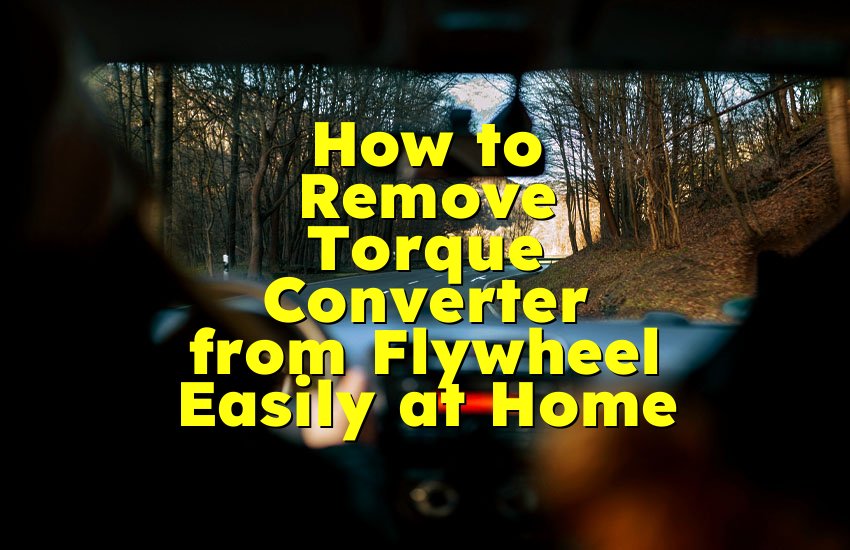As an Amazon Associate, I earn from qualifying purchases at no extra cost to you.
Can a Dirty Air Filter Cause Transmission Problems? Expert Guide
Have you ever felt your car slipping gears or acting weird and wondered if something simple like a dirty air filter could be the cause? I was once there, frustrated and confused, but found that yes, a dirty air filter can lead to transmission problems in some cases. In this article, I will explain how this happens, what signs to watch for, and what you can do to fix or prevent it.
How a Dirty Air Filter Affects Your Car's Engine and Transmission
A dirty air filter may seem like a small thing, but it can cause big problems in your car. The air filter's job is to clean the air entering your engine. When it gets clogged with dust and dirt, less air reaches the engine. This affects how the engine burns fuel and runs.
When your engine doesn't get enough clean air, it can run poorly. The engine might lose power or run rough, which can confuse the car's computer system. This system controls many parts of the car, including the transmission. Because the transmission relies on signals from the engine to decide when to shift gears, a poorly running engine can cause the transmission to act strangely.
For example, if the engine struggles due to dirty air, the transmission may shift too early or late, slip gears, or feel jerky. Over time, this puts more stress on the transmission, leading to more serious problems. So, even though the air filter doesn't connect directly to the transmission, it affects it through the engine's performance.
Also, a dirty air filter can cause your engine to run rich, meaning it uses too much fuel compared to air. This can foul spark plugs and sensors, causing incorrect data for the transmission control unit. The result? Transmission trouble like slipping or hesitation.
- Reduces air flow to the engine
- Causes poor engine performance
- Confuses the transmission control system
- Leads to shifting problems like slipping or jerking
- Increases stress on transmission parts
- Causes rich fuel mixtures that harm sensors
Recognizing Transmission Problems Linked to a Dirty Air Filter
Sometimes it's hard to tell what's causing your transmission issues. But if your air filter is dirty, you may notice some signs that point toward it as the cause. Knowing these signs helps you decide when to check or replace the air filter before bigger damage happens.
The most common signs include:
- Rough or delayed gear shifts
- Transmission slipping between gears
- Hesitation or jerking when accelerating
- Check engine light turning on
- Poor fuel economy
- Engine running rough or stalling
If you notice these symptoms, it's smart to look at your air filter first. A dirty air filter is easy to check — just open the filter box and see if the filter looks dark or clogged. Sometimes a dirty air filter alone may not cause big problems, but combined with other issues like old transmission fluid, it can create trouble.
Also, a dirty air filter can cause your engine to run hotter because of poor air flow. Overheating can damage your transmission fluid, making transmission parts wear faster. So, these symptoms can be clues that a dirty air filter is behind transmission problems.
- Jerky or rough gear changes
- Slipping or delayed shifting
- Check engine light is on
- Engine stalls or runs rough
- Decreased gas mileage
- Engine or transmission overheating
How to Check and Replace a Dirty Air Filter to Protect Your Transmission
Checking and replacing your air filter is simple and a great way to avoid transmission problems. Most cars have an easy-to-access air filter in a black plastic box near the engine. Open the box, remove the filter, and hold it up to a light. If you see little or no light through it, it's time to replace it.
When you buy a new air filter, make sure it's the right type for your car model. The replacement filter usually snaps or fits right in place. No tools may be needed, or you might need a screwdriver.
Changing the air filter regularly, about every 12,000 to 15,000 miles or more often if you drive in dusty areas, keeps your engine breathing well. This helps your transmission get correct signals and prevents shifting issues.
If your car's transmission is already having problems, replacing the air filter might improve the situation quickly. After changing the filter, drive your car and see if the shifting feels smoother and the engine runs better.
Remember, a clean air filter means cleaner air to the engine, better combustion, and less strain on the transmission.
- Locate the air filter box under the hood
- Open the box and remove the air filter
- Hold the filter to light to check for dirt
- Buy the correct replacement filter if needed
- Replace the filter and close the box securely
- Drive and check if transmission feels better
Why Ignoring a Dirty Air Filter Can Lead to Costly Transmission Repairs
Ignoring a dirty air filter may seem harmless at first, but it can lead to very expensive transmission repairs. When the engine doesn't get enough clean air, it struggles to run properly. This puts pressure on the transmission to work harder to keep your car moving.
Over time, this extra stress can cause transmission parts to wear out faster, or the transmission fluid to break down. Transmission fluid is very important because it cools and lubricates the transmission. If the fluid gets dirty or overheated from a struggling engine, the transmission can overheat and fail.
A damaged transmission can cost thousands of dollars to fix or replace. So, what starts as a small problem with an air filter can turn into a big bill if you don't fix it early.
Also, when your car's computer senses engine problems caused by a dirty air filter, it might limit transmission function to protect the car. This can cause your car to enter "limp mode," where it runs slowly and won't shift properly until the problem is fixed.
Regular maintenance, including changing your air filter, is one of the best ways to avoid these costly repairs. Don't wait for transmission trouble to start — keep your air filter clean.
- Engine runs poorly, stressing transmission
- Transmission fluid overheats and breaks down
- Transmission parts wear out faster
- Expensive repairs or full transmission replacement
- Car may go into limp mode
- Overall vehicle reliability decreases
How Regular Air Filter Maintenance Supports Transmission Health
Keeping your air filter clean is one of the easiest ways to protect your transmission and your whole car. Regular air filter maintenance ensures your engine gets clean air to burn fuel efficiently. This keeps the engine running smoothly and sends correct signals to the transmission.
Air filters don't just protect your engine — they protect your transmission indirectly by keeping the engine healthy. When you maintain your air filter well, you also avoid putting extra work on the transmission that comes from a struggling engine.
You can keep your air filter in good shape by:
- Checking it every 6 months or at every oil change
- Replacing it when it looks dirty or clogged
- Using high-quality air filters for better protection
- Avoiding driving in very dusty conditions or cleaning the filter more often if you do
If you maintain your air filter regularly, you save money on fuel, reduce wear on engine and transmission parts, and avoid annoying transmission problems.
- Inspect filter regularly (every 6 months or oil change)
- Replace when dirty or as per manufacturer's recommendation
- Use quality filters for better filtration
- Avoid dusty environments or clean filter more often
- Keep engine tuned to prevent other issues
- Maintain transmission fluid and system regularly
What to Do if You Suspect a Dirty Air Filter Is Affecting Your Transmission
If you think your transmission problems might be because of a dirty air filter, don't wait. Take these actions quickly to avoid bigger damage.
First, check the air filter yourself or take your car to a mechanic. If it's dirty, replace it immediately. After that, test drive your car and see if the transmission shifts better or if the check engine light goes off.
If problems continue, have a mechanic check the transmission fluid and other transmission components. Sometimes, the dirty air filter may have caused damage that needs fixing.
Also, get your car's engine codes scanned if the check engine light is on. This can give clues if sensors or systems affected by the dirty air filter are causing transmission trouble.
Early action helps avoid expensive repairs and keeps your car running smoothly. Don't ignore the warning signs.
- Check the air filter and replace if dirty
- Drive and observe transmission behavior
- Have a mechanic inspect transmission fluid and parts
- Scan for engine codes to identify sensor issues
- Follow maintenance recommendations strictly
- Act quickly to avoid costly damage
Final Thoughts
A dirty air filter might seem like a small issue, but it can cause big problems with your transmission by affecting how your engine runs. Poor engine performance leads to transmission stress, shifting problems, and eventually expensive repairs. The good news is that checking and changing your air filter regularly is easy and affordable. It helps your car run better and keeps your transmission healthy. Don't wait for problems—keep your air filter clean and enjoy a smoother drive.
| What to Do | Why It Matters | Result |
|---|---|---|
| Check air filter often | Prevents dirty air affecting engine | Engine runs smoothly, transmission works well |
| Replace dirty filter | Maintains good air flow | Stops transmission shifting issues |
| Monitor transmission symptoms | Early warning of problems | Avoids costly repairs |
| Keep transmission fluid clean | Protects transmission parts | Longer transmission life |
| Scan for engine codes | Diagnoses hidden issues | Fix problems before they get worse |
| Regular maintenance | Overall car health | Reliable driving experience |
Frequently Asked Questions (FAQs)
Is it normal for a dirty air filter to cause transmission slipping?
Yes, it can happen because a dirty air filter reduces airflow to the engine. When the engine struggles, it sends wrong signals to the transmission, which can make it slip or shift roughly. It's not the most common cause, but it is a possibility, especially if other engine issues come along. Fixing the air filter can often improve transmission behavior.
Can a dirty air filter cause the check engine light to come on?
Absolutely. When your air filter is dirty, your engine may run poorly, causing sensors to detect problems. This triggers the check engine light. Since the transmission relies on those sensors, the light can also indicate transmission issues linked to the dirty air filter.
Do I need to replace the air filter if my car has transmission problems?
If your air filter is dirty, replacing it is a good first step when facing transmission issues. It's easy and inexpensive. Sometimes it fixes the problem or improves it a lot. If the problems continue, then a mechanic should check the transmission for other causes.
Is it safe to drive with a dirty air filter affecting the transmission?
It's best not to drive for long with a dirty air filter causing transmission issues. Poor shifting and slipping can be dangerous on the road. Plus, driving this way can make transmission damage worse and lead to costly repairs.
Can cleaning the air filter instead of replacing it help transmission problems?
Cleaning some air filters (like reusable types) can help if done properly. But many air filters are designed to be replaced, not cleaned. If the filter is very dirty or damaged, replacement is better to ensure good airflow and avoid transmission trouble.
Do I need special tools to check the air filter myself?
No special tools are usually needed. Most air filters are in an easy-to-open box under the hood. You can simply open the box and inspect the filter. Some cars might require a screwdriver, but it's generally simple for beginners.
Is a dirty air filter the only reason for transmission problems?
No, there are many reasons transmission problems happen, like old fluid, worn parts, or electrical issues. But a dirty air filter can cause or contribute to these problems by making the engine run poorly. It's important to check the filter as part of diagnosing transmission trouble.
Can regular air filter changes extend the life of my transmission?
Yes, by keeping your engine running smoothly, regular air filter changes reduce strain on the transmission. This helps the transmission work better and last longer, saving you money on repairs and replacements.











